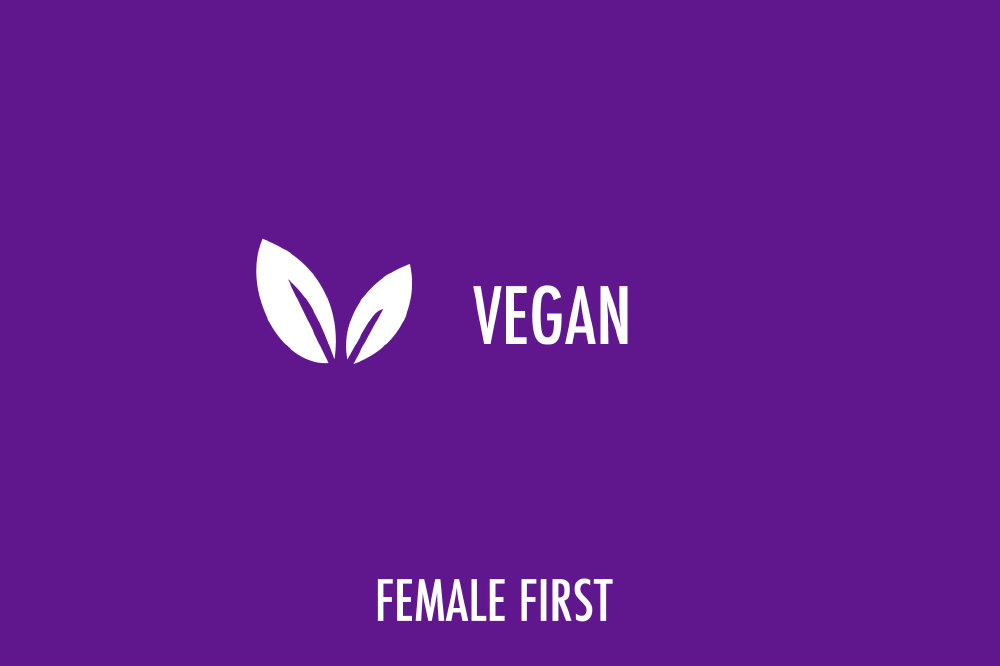As the days get colder, we reach for our coats, gloves and hats, but sometimes its the foods we are eating that can help us feel warm inside. We speak to nutritionist, Cassandra Barns about 5 plant based foods that can keep your warm and healthy this winter.

Vegan on Female First
Hot chocolate
Hot chocolate can be good for you, as well as being a great winter warmer! Pure cocoa is actually highly nutritious, and cacao - the raw, unroasted version of cocoa - even more so. They're rich in minerals such as magnesium and zinc, which are vital for energy and the immune system; and cacao in particular contains a wealth of antioxidant flavanols similar to those found in green tea, which may have benefits for the heart and brain. For a healthier winter hot chocolate, avoid the store-bought versions, which are often laden with sugar and contain very little cocoa. Instead, make your own using raw cacao powder or a raw chocolate bar, such as OMBAR raw chocolate.
Green tea with ginger
Try swapping your regular tea for green tea with ginger, such as Clearspring's Organic Ginger Green Tea. Green tea is thought to boost thermogenesis - literally meaning 'the production of heat' - to a greater extent than normal tea, partly thanks to the flavanols it contains. This property of green tea may also help you to maintain a healthy weight, by literally encouraging the burning of fat for energy. And the flavanols have antioxidant properties too, which may benefit the skin, heart, brain and immune system.
Ginger makes the perfect addition to green tea for a warming winter cuppa. It has natural warming and circulating-boosting properties and, like green tea, is thought to increase thermogenesis. Ginger is also fantastic for the digestion, and has been shown to have anti-viral and anti-bacterial activity, to help see off those winter bugs!
Seaweed (sea vegetables)
Although it's not an obvious warming food, seaweed could hold the secret to keeping you warm this winter. Sea vegetables are our best natural source of iodine - a mineral that's vital for making thyroid hormone, which controls our metabolism and body temperature. If we don't get enough of this important mineral, thyroid hormone production can slow down and we can feel the cold more acutely. Keep yours topped up by including sea vegetables such as nori, dulse or arame in your diet. They can be used to make wraps (nori), added to salads or added to soups and stews to give flavour. They can even be eaten as a snack: try Clearspring Seaveg Crispies with Chilli - the chilli will give an extra warming boost!
Porridge
What can be better than a bowl of warming porridge on a winter morning? As well as getting something hot into your tummy before you step outside, wholegrain oats break down and release their energy more slowly than a sugary breakfast cereal or a slice of toast. So they should help keep you warm - and keep your energy up - throughout the morning. They're also a good source of vitamins B1 and B6 and magnesium, which help the body convert food to energy. And because they break down slowly and are high in fibre, they can also help keep you feeling full too. I like Nairn's Gluten Free Scottish Porridge Oats - pure wholegrain oats with nothing added. Stir a teaspoon of cinnamon into your porridge for an extra warming boost.
Cinnamon
Cinnamon is a fantastic warming winter spice that's incredibly versatile. Try stirring a teaspoon into your porridge, as suggested above. Or for a delicious healthy snack, stir some into a pot of vegan yoghurt with fresh berries or chopped nuts. Sprinkle it on your cappuccino, or use it to make spicy chai tea.
As well as its warming properties, cinnamon may support blood sugar control, including by reducing the rise in blood sugar after a meal. So adding cinnamon to foods may help us to maintain a healthy weight and control sugar cravings - a particular benefit at this time of year! It's also thought to have gentle blood-thinning properties, supporting heart health and circulation.
Tagged in Vegan

